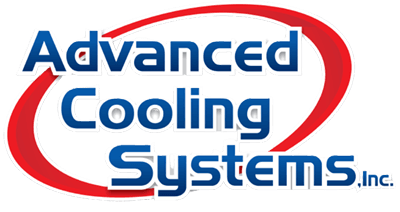Debunking 5 Common Myths About HVAC Systems
You don’t need an intricate knowledge of everything HVAC-related to get the most out of your HVAC system in Seminole, FL. But it’s a good idea to build a basic knowledge of how it operates. With that in mind, let’s debunk five of the most common myths surrounding HVAC systems and take a look at the truth behind them.
Bigger Is Better
Assuming that a larger HVAC system provides more power and is better is a faulty line of thinking. If your system is too small for your home, it’ll constantly struggle to keep things warm in the winter and cool in the summer, which may mean it’ll never turn off. If it’s too large, it may eat up too much power and turn on and off before it can complete a full cycle.
For these reasons, it’s important that your HVAC system be of just the right size for your home. To determine what that size is, an HVAC installation team should perform a manual J load calculation before setting you up with your system.
More Powerful Filters Are Always Better
A more powerful air filter can remove a greater amount of smaller pollutant particles from the air than a less powerful one can. Since better indoor air quality is always a good thing, you may think that that’s the end of the matter. Unfortunately, it isn’t.
If the mesh on the air filter in your HVAC system is too fine, it may actually hinder airflow through the system. This can severely compromise system efficiency, raise your energy bills and cause overheating.
We measure filter efficiency using something called a MERV rating, which stands for Minimum Efficiency Reporting Value. Filters with MERV ratings between 8 and 10 are ideal, and your system will probably not be able to handle those with MERV ratings above 13 without special modifications.
You Should Only Address Your HVAC System When It’s Broken
This is a particularly dangerous myth, as ignoring your HVAC system until it breaks down makes it more likely that you’ll run into the need for repairs. You should always schedule maintenance for your HVAC system even if nothing appears to be wrong with it.
A maintenance service technician can discover subtle problems that haven’t yet become serious. This could save you from future trouble down the road and prolong your system’s lifespan. Therefore, we recommend scheduling HVAC maintenance at least once per year.
You May Place Your Thermostat Anywhere
Where you install your thermostat in your home can make a significant difference to your HVAC system’s behavior. Ideally, you should try to install it in a room that is neither too hot nor too cold and that is as close to your home’s average temperature as possible.
If you install the device in a warm room instead, your thermostat will read the warm temperature, and your HVAC system will either cool your home too much or not warm it enough. The opposite problem will happen if you install the device in a room that’s too cold.
Duct Tape Can Fix Duct Leaks
Duct leaks are serious problems that can greatly reduce your HVAC system’s efficiency and force it to work overtime. You may feel the temptation to simply cover up holes in your ductwork with some tape. Don’t do this.
Tape won’t reliably seal the holes in your ducts. Only trained professionals have the necessary tools and skills to suitably perform that job. Damaged ductwork not only lowers your indoor air quality but also decreases your system’s efficiency capabilities.
Now that we’ve dispelled these myths, you have a firm foundation on which to learn to use your HVAC system optimally. Just call Advanced Cooling Systems and ask for our HVAC services from our team of experienced service technicians.
Image provided by iStock
